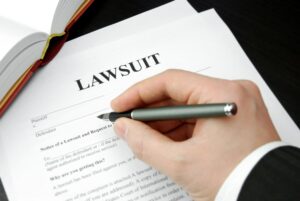When riding as a passenger in someone else’s vehicle, the last thing you expect is to have an accident and sustain injuries. Still, car accidents happen every day, and many of these collisions involve multiple individuals, including drivers and their passengers.
If you’re hurt in a car wreck and now face financial strain as a result, you may have options to pursue fair compensation. Depending on the situation, seeking financial recovery as a passenger can come with some obstacles. Therefore, it’s best to immediately consult with a knowledgeable car accident attorney for assistance with your claim.
Can a Passenger Pursue Compensation Following a Car Accident?

Often, passengers involved in car accidents worry they are not entitled to receive any monetary recovery, even if they sustain injuries and other related expenses. In reality, as a passenger, you have similar rights to compensation as drivers.
The road to financial recovery may be a bit different, based on state law and your circumstances. However, you can rest assured you don’t have to carry the financial burdens alone, especially for an accident that was not your fault.
Legal Options for Passengers
As a vehicle’s passenger, you may have multiple options to pursue compensation for your accident injuries and losses. Seeking monetary recovery may involve an insurance claim, a personal injury lawsuit, or, in some cases, both.
Filing an Insurance Claim
You may have the opportunity to file an auto insurance claim to obtain fair compensation for your car accident. However, whose insurance you file a claim under depends on state fault laws and the situation.
Fault States
You can file a third-party claim if your collision occurred in a fault state. In a fault state, you can pursue financial recovery from the party that caused the accident, whether that be the person driving the car you were in or the other vehicle.
Once you file a claim with the at-fault party’s insurance company, the assigned insurance adjuster investigates the collision and gathers pertinent information and evidence. Depending on their findings, they will approve or deny your claim. If they approve your claim, they’ll make an offer to settle your claim based on the value they assign to your claim. Should they deny your claim, you may have additional options.
No-Fault States
The rules are a bit different if you live in a no-fault state. You’re not required to prove the other party’s fault to obtain compensation. Instead, regardless of fault, you can file a first-party insurance claim through your own insurance.
No-fault states require drivers to carry at least the state minimum personal injury protection (PIP) insurance. If you are a driver and have PIP insurance, you can file a claim through your insurer, even as a passenger.
If you do not have PIP insurance, perhaps because you don’t own a car, you still have protection under the insurance of the driver whose car you were in. This is true regardless of who caused the accident, whether your driver or the other vehicle’s driver. You may file a personal injury lawsuit if the driver does not have PIP insurance.
Sometimes, injuries and losses exceed PIP policy limits. If this is your case, you may meet the state requirements to file a personal injury lawsuit against the at-fault driver for additional compensation.
Uninsured Drivers
While state law requires drivers to carry minimum auto insurance, many drivers intentionally or unintentionally drive without insurance. You can still acquire compensation if you’re involved in a collision with an uninsured driver.
Some states require drivers to purchase uninsured motorist coverage. This coverage kicks in when you’re involved in a crash with a driver without insurance. Even if your state doesn’t require this type of coverage, all insurance companies offer it as an optional way to add another layer of protection.
If uninsured motorist insurance coverage is not an option, you may file a lawsuit against the at-fault driver instead.
Determining how to seek financial recovery from an uninsured driver can be tricky. A car accident attorney can evaluate your case's details and advise on how to proceed.
Filing a Personal Injury Lawsuit

Under certain circumstances, you might need to file a personal injury lawsuit. Car accidents fall under the area of personal injury, or tort law, which allows victims injured by third parties to pursue justice and monetary recovery.
You may have to file a lawsuit when:
- Policy limits don’t sufficiently cover your damages
- The at-fault party is uninsured
- The insurance company is unwilling to fairly settle your claim
- Someone other than another driver is at fault for the collision, such as a product manufacturer or construction company
In many cases, even if you file an insurance claim, you may still end up filing a personal injury lawsuit as well. Insurance companies are tough to deal with; their primary objective is to limit their liability and pay you as little as possible. Therefore, your insurance claim may not yield favorable results, and you’ll have to file a lawsuit against the insurance company.
Some of the key steps involved in a personal injury claim include:
- Investigating your accident
- Gathering strong evidence
- Determining the cause of your collision
- Establishing liability
- Calculating your damages
- Communicating with the insurance company
- Engaging in settlement negotiations with the opposing party
- Taking the case to court, only if necessary
The thought of filing a lawsuit for a car accident may be daunting and worrisome, but a car accident attorney can handle your claim on your behalf. Often, filing a personal injury lawsuit is the right move to acquire the financial recovery you need for your accident-related losses.
Damages Available for Passengers in a Collision
As a passenger injured in a collision, you have the right to receive fair damages. You can seek compensation for your monetary and non-monetary losses, including:
- Current and future medical expenses
- Rehabilitation and therapy
- Present and future lost earnings
- Property damage
- Disability
In some cases, you can pursue certain non-economic losses, such as pain and suffering. However, in some states, you might need to file a lawsuit to seek these types of intangible losses, as you may not receive a fair offer for non-economic losses from the insurance company.
Details Determining How Much Money a Passenger Can Obtain
There is no “average” settlement a passenger in a car accident can expect to receive from their claim. Instead, the money a passenger can obtain heavily depends on several factors, including the following.
The Extent of Your Injuries
The types of injuries you sustain and the severity of these injuries are primary factors used to determine compensation, as medical expenses are usually the most costly. The more severe your injuries, the more extensive your medical treatment, which usually means you’ll need further compensation to adequately cover your medical expenses, including:
- Ambulance transportation
- Emergency room bills
- Surgeries
- Medications
- Doctor’s visits
It’s also crucial to consider the long-term consequences of your injuries. If your injuries are substantial, you may need additional treatment in the future, which increases your financial need.
The Impact of Your Injuries
Concerning injuries, it’s not just important to consider medical expenses but also other financial losses you may experience from your physical state. For example, you may need to take some time off from work to recover, which means you may not earn a living during that period. Not only does this affect you, but also your family and dependents.
When injuries are particularly serious, and you suffer life-changing complications, you can experience permanent life changes. You may never return to work or participate in activities you once enjoyed. Your lifestyle and relationships may also suffer. Life might look very different post-accident.
The greater the impact of your injuries on your life, the more financial recovery you’ll need.
Fault
Determining and proving fault isn’t always so simple, especially in more complex cases. Still, fault is one of the essential parts of a compensation claim, as you need to know who was responsible for the collision to file claims against the appropriate parties.
Different scenarios may present challenges when determining fault, like:
- The fault is shared between two or more drivers
- The driver of your vehicle may be wholly or partially at fault
- The at-fault driver was working at the time of the collision, so their employer may be responsible
- Companies may be at fault for negligent road construction or defective cars
- The government may be partially or fully at fault due to hazardous road conditions
Fault can be particularly complicated. To adequately figure out who is liable for your accident, a car accident lawyer may need to conduct a thorough investigation.
Policy Limits
It’s important to understand how policy limits work in a car accident. Simply put, you cannot recover more than what’s available in an insurance policy.
For example, if you file a claim against the at-fault driver, and their policy limit is $50,000, you cannot obtain more than that. This can have a substantial bearing on your overall settlement.
If your losses exceed policy limits, you may need to explore other options, including filing a personal injury lawsuit.
What if the Driver Was a Close Family Member or Friend?
If the driver of the vehicle you were in is a close family member or friend, it can make the situation a bit more difficult and awkward. You might not want to do anything to insult this individual, but you also need to look out for yourself and your finances.
If your driver was at fault, you may need to file a claim with their insurance company for compensation. The individual may deter you from doing this, as they may fear an increase in their insurance premiums, but their insurance rates will likely increase regardless.
The situation becomes even more personal if you need to file a lawsuit. Although the circumstances may be less than ideal, you must consider your needs.
It is best to speak with a skilled car accident attorney. A lawyer can provide guidance and advice on how to proceed with a delicate situation.
Can Rideshare Passengers Seek Compensation After an Accident Too?

What if you were a passenger in a rideshare vehicle at the time of the collision? If you were a passenger in an Uber or Lyft and suffered an injury in a car accident, you also have the right to file a claim for compensation.
Claims work differently in situations involving rideshare vehicles. Rideshare drivers must carry their own auto insurance, but Uber and Lyft provide additional insurance protection, depending on the scenario.
If you were in the vehicle during the collision, you can file a claim against the at-fault driver (either the rideshare driver or the other driver). Should your damages exceed policy limits, the rideshare company’s liability coverage can kick in to provide additional compensation.
Rideshare accident claims can be tough to handle. Consequently, seeking help from a car accident attorney for more favorable results is ideal.
Time Limits for Auto Collision Claims
As a passenger in a car accident, legal time limits also apply to you. The statute of limitations places a time restriction on your chance to file your personal injury claim. Depending on your state’s laws, you may have as little as one year but as long as six years to file your lawsuit.
Filing to file a timely claim can negatively impact your ability to obtain financial recovery. For this reason, it’s important to act quickly following a collision and begin working on your claim right away.
The Advantage of Hiring a Car Accident Attorney
Car accident claims as a passenger can be challenging to navigate. Fortunately, you don’t have to do it alone. Help from a local car accident attorney is easily accessible.
It may be tempting to forgo the assistance and handle your claim on your own, but your claim may not yield the results you need and deserve. A car accident lawyer has the experience, skills, and resources to take on your case, protect your rights, and fight for full and fair compensation.
Following a car accident, consult with a reputable Phoenix personal injury law firm right away. Your lawyer can evaluate your claim to determine how much money you are entitled to receive and aggressively pursue an advantageous case result on your behalf.